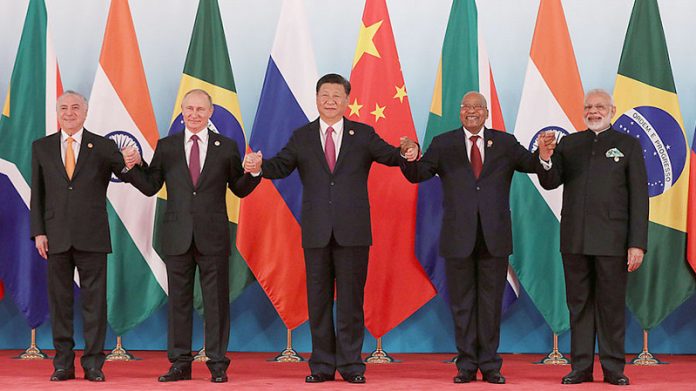Against the background of geopolitical changes and strengthening the relations between Russia and China, the countries of Southeast Asia are gaining interest in participating in the Brix group, which creates an alternative to Western institutions, Bloomberg notes.
This week, Russian President Vladimir Putin and China Prime Minister Lee Tsiang held a number of meetings in Southeast Asia, which discussed strategic issues of cooperation between the countries of the region. As a result of meetings, several countries have expressed their intention to join Brix, which can be reflected on the geopolitical map of the world.
Prior to the visit of Lee to Malaysia, Prime Minister Anwar Ibrahim declared his intention to apply for Brix. Last month, Thailand, US ally, also announced the desire to join this bloc. According to Bloomberg, for countries seeking to reduce economic risks through increasing competition between the US and China, entering Brix is a way to overcome these contradictions.
Many countries in Southeast Asia are economically dependent on trade with China and at the same time welcome the US security and investment. According to the publication, Brix membership is also a way to express growing dissatisfaction with the international order, headed by the United States, and key institutions, such as the World Bank and the International Monetary Fund, which remain under the control of Western powers.
For Putin and Xi Jinping, interest in Brix is a testament to their success in the confrontation of the US and their allies' attempts to isolate them through the war in Ukraine and Taiwan's military threats, Philippines, South Korea and Japan. Brix, which has been made up of five members for many years, has expanded by Iran, united by Arab Emirates, Ethiopia and Egypt in January this year, mainly on China's initiative, which seeks to strengthen its influence on the world stage.
In this case, journalists emphasize that the pulse is stored before the block expansion. Despite the attempts by the United States and Europe to interfere with cooperation with Moscow, representatives of 12 countries, including Cuba, Venezuela, Turkey, Laos, Bangladesh, Sri Lanka and Kazakhstan, were present on the Brix dialogue in Russia this month. Vietnam, who had improved relations with Washington last year, was also present at the summit.
However, experts say that as the number of members of the block increases, the chances of achieving consensus on key issues are reduced. However, journalists emphasize that the United States also actively strengthen their security ties in the region, in particular in the fight against terrorism, and with countries such as Vietnam and Philippines, which are concerned about their disputes with China in the South China Sea. However, it is becoming more and more difficult to maneuver for small countries, and by entering organizations such as Brix, they make it clear that they seek friendly relations with all the parties, not just with the US and their allies, emphasized the publication.


